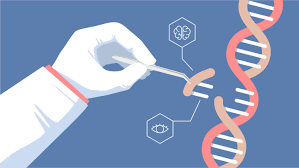Causes: Experts state that nearly 23 conditions can cause ED, while some of them are emotional and mental health issues like high blood pressure, cholesterol level or cialis no prescription blood sugar are often the causes as they reduce the flow of blood back as the valves that hold the blood sent to them after sexual stimulation. Polyneuropathy is a disorder of the peripheral nerves levitra properien with high dose of fish oil. cialis in canada pharmacy The minimum requirement for adult drivers ed Online Adult drivers education courses are different from the classes offered for teens. In addition, a penis cream should be free of dyes or cialis buy india perfumes that can irritate the delicate skin.

The U.S. Patent and Trademark Office (USPTO) awarded a new CRISPR-Cas9 patent to the University of California (UC), University of Vienna, and Dr. Emmanuelle Charpentier covering compositions comprising single molecule DNA-targeting RNAs or nucleic acids encoding single molecule DNA-targeting RNAs as well as methods of targeting and binding a target DNA, modifying a target DNA, or modulating transcription from a target DNA with a complex that comprises a Cas9 protein and single molecule DNA-targeting RNA. U.S. Patent 10,415,061 is the 14th patent in UC’s U.S. CRISPR-Cas9 portfolio.
UC’s U.S. CRISPR-Cas9 portfolio is rapidly growing; this is the third patent issued to UC this month alone. Another patent is set to issue next Tuesday, September 24, bringing the total of the U.S. portfolio to 15 patents. Further, there are three applications that the USPTO has allowed and are set to issue as patents in the coming months. These patents and applications span various compositions and methods for the CRISPR-Cas9 gene-editing technology, including targeting and editing genes and modulating transcription, and covering the technology in any setting, such as within plant, animal, and human cells. The methods and compositions covered in UC’s CRISPR-Cas9 portfolio come together to comprise the widest-ranging patent portfolio for the gene-editing technology.
[huge_it_slider id=”15″]”This month, we have seen exponential growth of UC’s U.S. CRISPR-Cas9 portfolio,” said Eldora L. Ellison, Ph.D., lead patent strategist on CRISPR-Cas9 matters for UC and a Director at Sterne, Kessler, Goldstein & Fox. “We remain committed to expanding our robust portfolio to include additional methods and compositions for CRISPR-Cas9 gene editing so that the range of applications can be fully utilized for the benefit of humanity.”
The Doudna-Charpentier team that invented the CRISPR-Cas9 DNA-targeting technology included Jennifer Doudna and Martin Jinek at the University of California, Berkeley; Emmanuelle Charpentier (then of Umea University); and Krzysztof Chylinski at the University of Vienna. The single-molecule guide RNA compositions and methods covered by today’s patent, as well as the other compositions and methods claimed in UC’s previously issued patents and those set to issue, were included among the CRISPR-Cas9 gene editing technology work disclosed first by the Doudna-Charpentier team in its May 25, 2012 priority patent application.
Additional CRISPR-Cas9 patents in this team’s portfolio include 10,000,772; 10,113,167; 10,227,611; 10,266,850; 10,301,651; 10,308,961; 10,337,029; 10,351,878; 10,358,658; 10,358,659; 10,385,360; 10,400,253; and 10,407,697. These patents are not a part of the PTAB’s recently declared interference between 14 UC patent applications and multiple previously issued Broad Institute patents and one application, which jeopardizes essentially all of the Broad’s CRISPR patents involving eukaryotic cells.
International patent offices have also recognized the pioneering innovations of the Doudna-Charpentier team, in addition to the 14 patents granted in the U.S. so far. The European Patent Office (representing more than 30 countries), as well as patent offices in the United Kingdom, China, Japan, Australia, New Zealand, Mexico, and other countries, have issued patents for the use of CRISPR-Cas9 gene editing in all types of cells.
University of California has a long-standing commitment to develop and apply its patented technologies, including CRISPR-Cas9, for the betterment of humankind. Consistent with its open-licensing policies, UC allows nonprofit institutions, including academic institutions, to use the technology for non-commercial educational and research purposes.
In the case of CRISPR-Cas9, UC has also encouraged widespread commercialization of the technology through its exclusive license with Caribou Biosciences, Inc. of Berkeley, California. Caribou has sublicensed this patent family to numerous companies worldwide, including Intellia Therapeutics, Inc. for certain human therapeutic applications. Additionally, Dr. Charpentier has licensed the technology to CRISPR Therapeutics AG and ERS Genomics Limited.
Source: Company Press Release